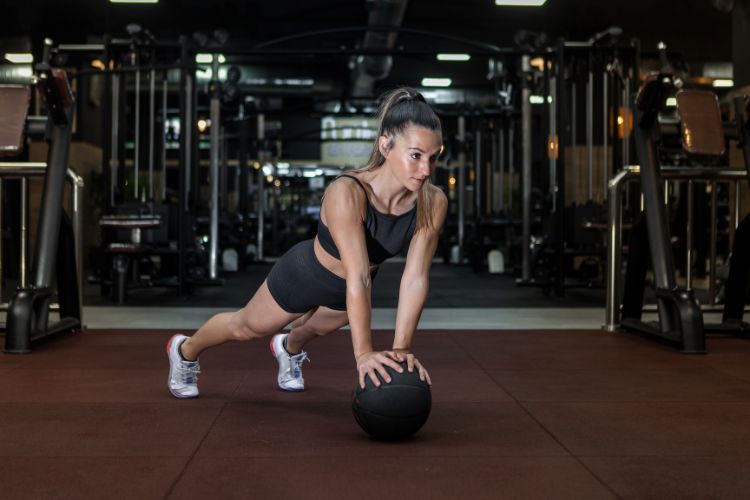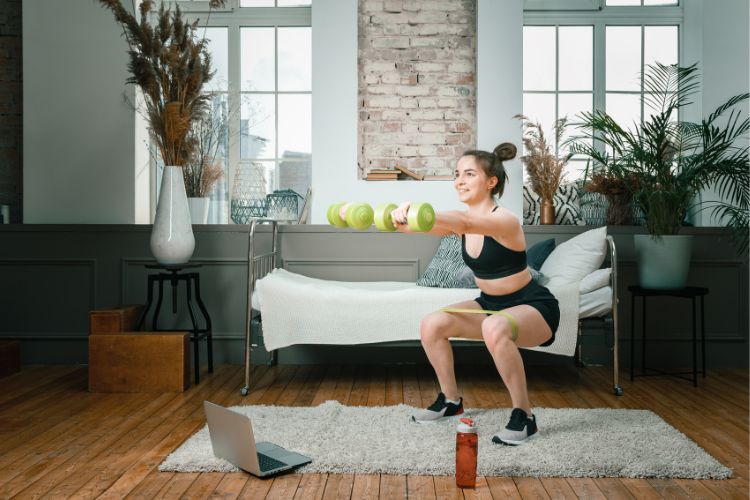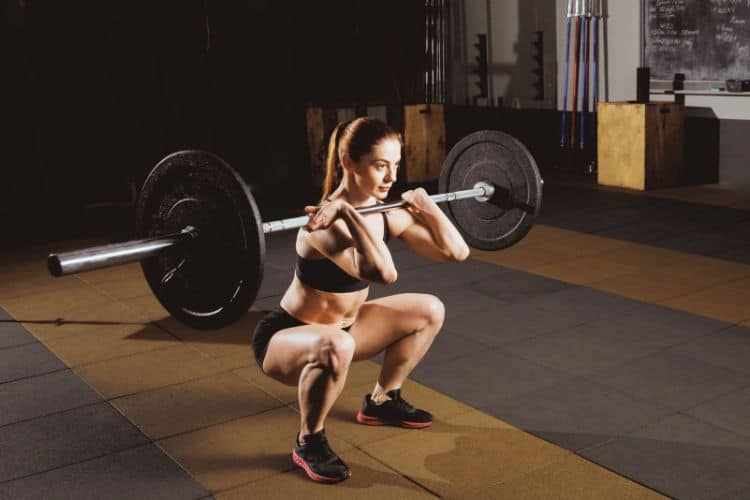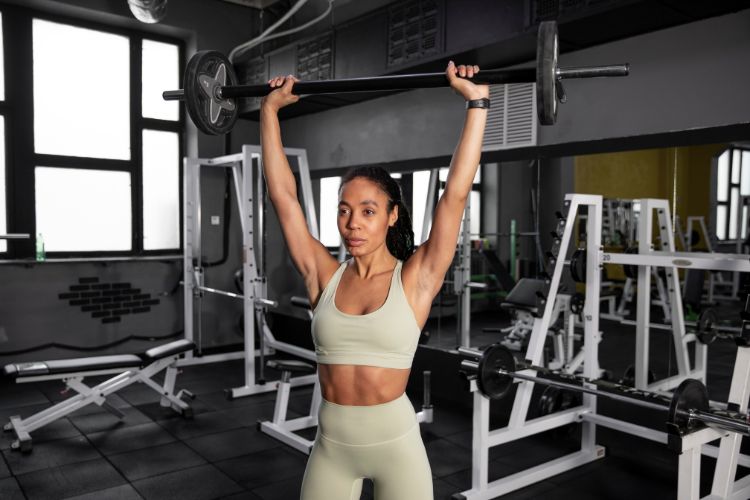Sign up for workout ideas, training advice, reviews of the latest gear and more.






Physical wellness is a universal goal, but for women, the journey and benefits of physical workouts carry unique implications. Given the societal pressures, health issues exclusive to females, and roles women often find themselves in, a dedicated fitness routine can be a powerful tool for empowerment, self-love, and health optimization.
A Stronger Heart: Cardiovascular exercises, from brisk walking to high-intensity interval training, strengthen the heart. Women, particularly post-menopause, are at risk of heart diseases. A regular workout regimen helps reduce this risk.
Bone Density Maintenance: Osteoporosis is a significant concern for many women as they age. Weight-bearing exercises, like resistance training and certain yoga poses, enhance bone density and decrease the risk of fractures.
Hormonal Balance: Exercise releases endorphins, the feel-good hormones, which aid in mood regulation. For women grappling with PMS, postpartum depression, or menopause symptoms, physical workouts can act as a natural remedy.
Confidence Boost: Meeting fitness goals, whether it’s lifting a certain weight, completing a challenging yoga pose, or running a set distance, instills a sense of accomplishment. This spills over into daily life, enhancing self-worth and confidence.
Stress Reliever: The modern woman often juggles various roles – a professional, mother, partner, and more. Physical exercise provides a healthy outlet for stress, ensuring emotional well-being.
Mindfulness and Presence: Workout Activities like pilates and yoga not only offer physical benefits but also foster mindfulness. They allow women to connect with their bodies, understand its needs, and stay present in the moment.
Defying Traditional Norms: Historically, strength, both mental and physical, has been associated with men. When women engage in strength training or excel in traditionally male-dominated sports, they challenge and redefine gender norms.
Fostering Community: Joining fitness classes or groups encourages community interaction. Women get an opportunity to connect, share experiences, and foster mutual growth, moving past societal confines.
Physical workouts aren’t merely a tool for achieving a particular body type; they’re a celebration of what one’s body can accomplish. As women, body image pressures can be relentless. However, by focusing on strength, flexibility, endurance, and mental well-being, exercise becomes a medium to embrace and appreciate one’s body for its capabilities rather than just its appearance.
When a woman incorporates physical fitness into her lifestyle, she not only benefits herself but also influences her family. Children often emulate their parents. By prioritizing health and wellness, women set a precedent for the next generation, encouraging holistic well-being.
Physical strength and stamina enable women to be more independent. Simple tasks, like carrying grocery bags or moving furniture, become more manageable. In essence, workouts equip women to be self-reliant in various life situations.
There’s a strong link between physical activity and cognitive function. Workouts can boost creativity, enhance concentration, and improve problem-solving abilities. For women in creative or demanding professions, this can be a game-changer.
Starting a fitness journey can seem daunting, but it’s essential to remember that every woman’s journey is unique. Here are some steps to get started:
Self-Assessment: Identify your goals, be it strength, flexibility, mental well-being, or a combination of these.
Begin Slow: Especially if you’re new to working out, start with low-impact exercises and gradually increase intensity.
Diversify: Mix and match workouts to keep them engaging. This could mean combining cardio, strength training, and flexibility exercises.
Seek Guidance: Consider hiring a personal trainer, joining a local gym, or enrolling in classes tailored for women.
Listen to Your Body: It’s crucial to recognize your body’s signals. Rest when needed and adjust routines based on how you feel.
Maternal Fitness: Regular exercise during pregnancy, with a doctor’s clearance, can lead to smoother deliveries and quicker postpartum recovery. Exercises like prenatal yoga and walking are popular choices. Postpartum, workouts can help in regaining strength, managing potential postpartum depression, and boosting overall energy levels that are required to care for a newborn.
Menstrual Health: Regular exercise can help in managing menstrual cramps and discomfort. While the old advice often recommended rest, many women now find relief from mild exercises during their period.
Diet and Nutrition: Physical workouts are most effective when complemented with a balanced diet. Women have specific nutritional needs, such as higher calcium intake for bone health or iron due to menstruation. Pairing exercise with mindful eating enhances overall health.
Mental Well-being: Alongside the physical aspect, it’s imperative to focus on mental wellness. Incorporate practices like meditation, journaling, or even leisurely walks in nature. These practices, combined with regular exercise, create a holistic wellness routine.
Shared Motivation: Group fitness classes, be it aerobics, spin, or dance, offer a space for collective energy. The shared motivation can push one to persevere on days when individual motivation might wane.
Social Connections: These group settings can foster deep friendships and provide a supportive community. Sharing challenges, achievements, and goals with like-minded women can be immensely therapeutic.
With the advent of technology, many resources are tailored specifically for women. Here’s how tech plays a role:
Fitness Apps: Apps like MyFitnessPal or Fitbit allow women to track their nutrition, steps, workouts, and even menstrual cycles. This data-driven approach can lead to more personalized workout plans.
Online Communities: Websites and forums dedicated to women’s health provide a platform for sharing stories, asking questions, and seeking advice.
Virtual Workouts: Especially post-pandemic, the rise of virtual workout sessions means that you can access top trainers and classes from the comfort of your home. This flexibility can be a boon, especially for women juggling multiple roles.
Time Management: One of the primary reasons women cite for not exercising is a lack of time. However, even short bursts of activity, like 10-minute HIIT workouts or quick yoga sessions, can be beneficial.
Cost-effective Solutions: Not everyone can afford gym memberships or personal trainers. But fitness needn’t be expensive. Simple tools like resistance bands, skipping ropes, or even body-weight exercises can be equally effective.
Creating a Safe Environment: It’s essential for women to feel safe, whether they’re running in a park or attending a late-night yoga class. Advocate for community solutions like well-lit parks or women-only workout hours, if necessary.
Fitness in Youth: In teenage years and early adulthood, exercise establishes a foundation for lifelong health habits. It can also help in managing hormonal fluctuations and the stresses of academic or early professional life.
Middle-aged Fitness: As women navigate career peaks and perhaps motherhood, exercise can counterbalance the stresses, keeping lifestyle diseases at bay and maintaining physical strength.
Senior Fitness: Exercise in older age can maintain mobility, reduce the risk of falls, improve cognitive function, and boost overall vitality. Gentle exercises like tai chi, walking, or aqua aerobics can be particularly beneficial.
Embracing fitness is an ode to oneself. It is an acknowledgment of the strength, resilience, and potential of women’s bodies. Whether you’re lifting weights, dancing, swimming, or meditating, every movement is a testament to the incredible capabilities of the female body.
Empowerment, in its truest sense, stems from understanding and harnessing one’s potential. Through physical workouts, women globally are doing just that – breaking barriers, setting new norms, and most importantly, honoring themselves. In this journey of health and wellness, remember, every step counts, and every drop of sweat is a badge of honor. Celebrate each moment, each milestone, and each hurdle overcome. Fitness, after all, is a lifelong journey, not a destination.
Stay up to date on the latest women’s health, fitness and lifestyle trends and tips.